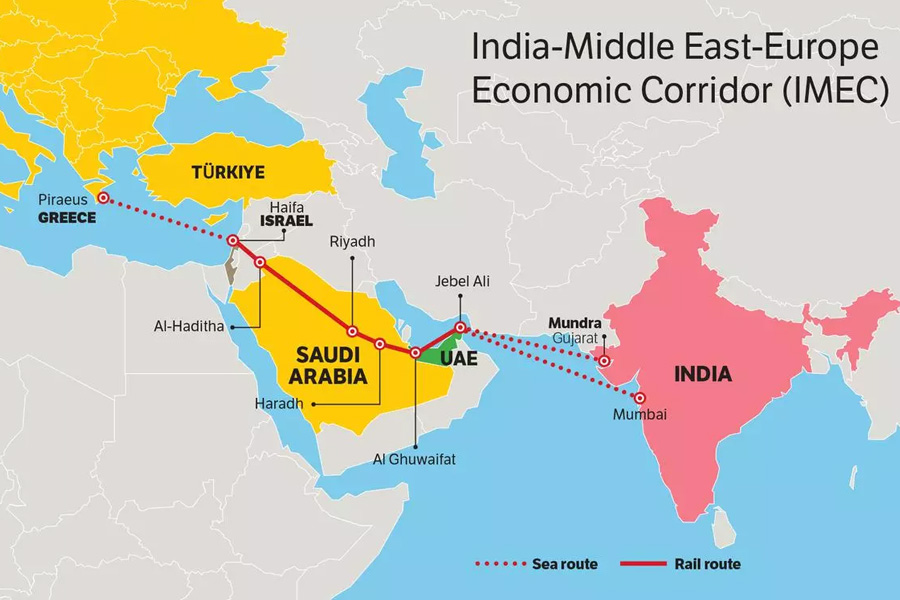
India-Middle East-Europe Economic Corridor (IMEC) boosts Asia-Europe trade integration, benefiting Asian economies, but environmental priorities may compromise economic goals.
Authors
Suvajit Banerjee, National Council of Applied Economic Research (NCAER), New Delhi, India
Surendar Singh, Associate Professor, Jindal School of Liberal Arts & Humanities, O.P. Jindal University, Sonipat, Haryana, India
Summary
The India-Middle East-Europe Economic Corridor (IMEC) can play a pivotal role in various economic and geostrategic spheres by facilitating trade integration between Asia and Europe. The study portrays the mechanism through which the IMEC participating economies can achieve their respective policy goals.
The study is focused on a dual research objective. Firstly, it attempts to develop an inter-country input–output (ICIO) and linear programming (LP) impact analysis framework to address the potential of trade integration across the IMEC participating members phase-wise, initially within the Asian countries and later expanded to some European countries. For a comparison between north–south and south-south trade, the study conducts separate simulation modeling exercises based on the entire IMEC and the Eastern Corridor IMEC respectively. Secondly, the study intends to present some first-hand alternative policy choices for IMEC negotiators and trade enthusiasts both from economic and environmental perspectives.
The findings demonstrate that as the IMEC network expands, trade diversion away from other parts of the world decreases, leading to the creation of trade opportunities shared with a larger number of trading partners. This results in a minor reduction in national income growth for the European member economies, while significantly improving the economic prospects for the IMEC Asian members. The study also indicates that the emphasis on environmental priorities is impeding the economic objectives, particularly among Asian IMEC members, resulting in a policy trade-off. The restructuring of energy systems to lower CO2 emissions is diminishing national income growth to nearly half of the figures achievable when economic policy goals take precedence.
Published in: Asia Europe Journal
To read the full article, please click here.

